Some people at 70 would prefer to slow down and perhaps retreat to a life of lesser challenges. However, if one has a mission, and that mission is to help expand the life and health span of people everywhere, then life takes on a more intense drive.
Lenny Guarente is the Novartis Professor of Biology at the Massachusetts Institute of Technology, one of the founders of Elysium Health, and is thought of in some circles as the godfather of current longevity research, an undisputed giant in the field. For more than 40 years, he has studied the mechanisms and causes of aging, as both an aging researcher and a professor of biology. Of particular note is his ongoing research into the importance of sirtuins and the effects of the essential molecule NAD+ on aging, and on overall lifespan. He has shepherded and inspired a generation of top scientists; from his lab have come such luminaries as David Sinclair, among others.
Lenny is also a cool guy, who, in the spirit of Johnny Cash, insists on a black t-shirt as his day-to-day go-to choice.
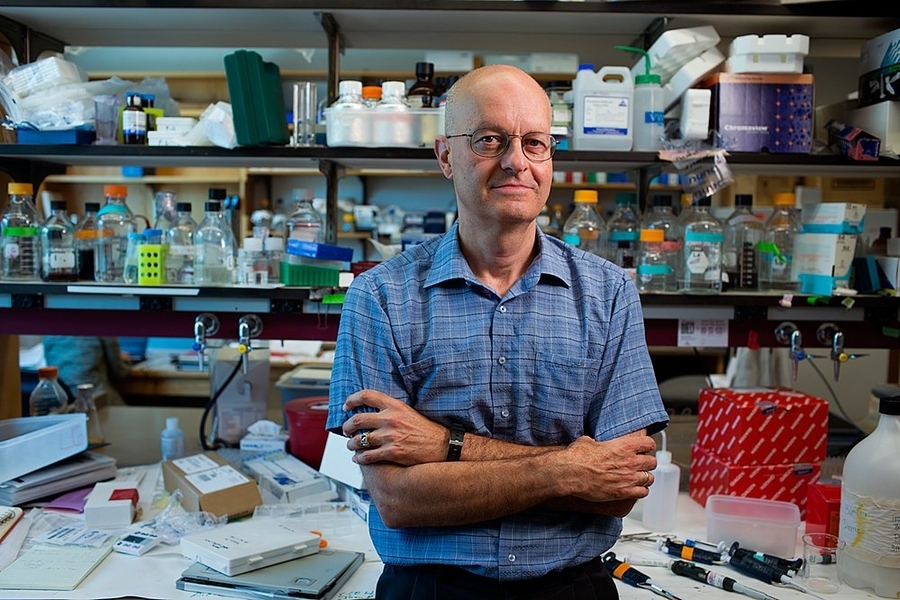
Do you think that aging is a disease that can be treated?
Aging is not a disease; it begins early and without symptoms and it is universal, affecting us all. It is also part of the normal structural and functional state of the human organism/body whereas diseases, by definition, are not. Aging, however, can be measured and slowed.
“Inflammation is a key issue for aging, but there are different types of inflammation”
Any thoughts you would like to share on inflammation and aging? Are they related and, if so, are there ways to reduce it?
Inflammation is a key issue for aging, but there are different types of inflammation. Often, when people think of inflammation, what they’re really thinking of is acute inflammation, which is a response to an illness or an injury. From the perspective of aging, there is something known as “inflammaging.” This is the slow and steady accumulation of systemic, chronic inflammation. At Elysium, we have set out to research the latter. For instance, we studied our Basis product in healthy individuals with non-alcoholic fatty liver disease (NAFLD), which itself is a misnomer because it is not a disease. It is, however, an incredibly common precondition, or pre-disease state, that is estimated to affect up to 100 million Americans, and is only increasing in occurrence. As the name implies, fatty liver is characterized by the abnormal accumulation of fat on the liver, which impairs its function and leads to systemic, chronic inflammation. In our study, the recommended dose of Basis, taken for six months, reduced multiple markers of liver inflammation, vs placebo. This trial was recently accepted in the journal of Hepatology and will be available online shortly.
AGEIST Reader Special, try any Elysium products: Use code “AGEIST” for 25% OFF the first month of any monthly subscription.
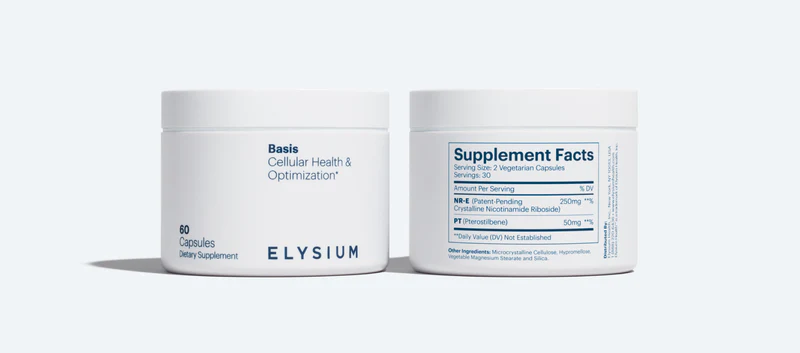
Why did you found Elysium?
We wanted to take advantage of new advances in aging research, and thought we could find a new space between traditional supplement companies and big pharma by applying scientific rigor to identifying efficacious natural compounds that could target processes of aging and meaningfully impact human health.
What are you working on in the field of aging science now?
We are introducing new consumer health products regularly, and developing new diagnostics for measuring aging itself, including biological age and other important health determinants.
What are the biggest challenges you are facing today in your research?
The consumer health market is not known for the same rigor as pharmaceutical products. As such, communicating the benefits and making the research known to customers can be a challenge — we continue to focus on making people aware of the increasing number of proven health benefits of Elysium products.
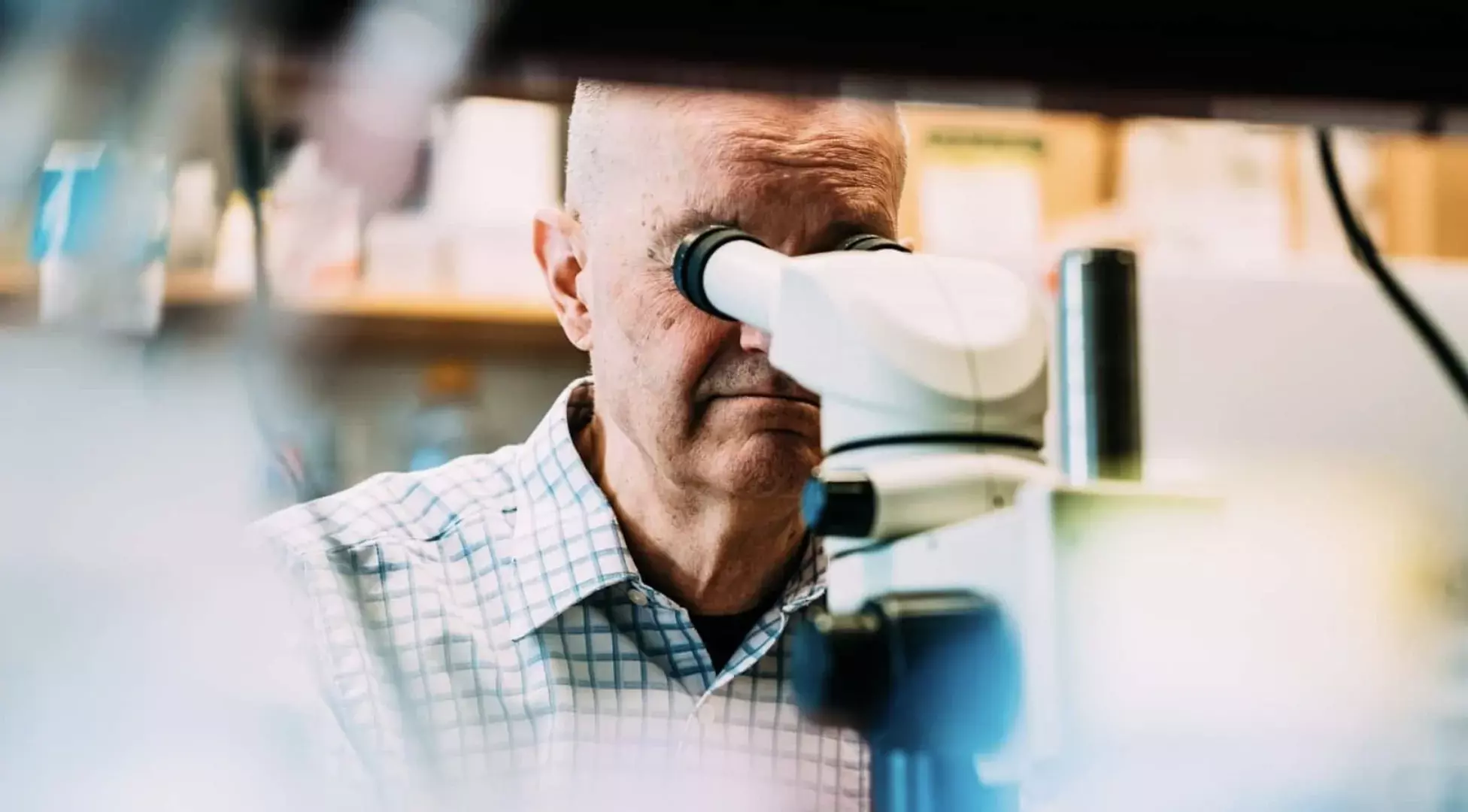
“Retaining muscle mass is a key anti-aging strategy”
In my lab at MIT, we are studying the repair of skeletal muscle from damage that occurs routinely; for example, during exercise. Slowing sarcopenia — age-related involuntary loss of skeletal muscle mass and strength — and retaining muscle mass is a key anti-aging strategy.
What is your age as measured by Index? How do you feel about that?
It’s six years younger than my chronological age. Feels good.
How long do you expect you will live?
I have no clue, but I’m less focused on the number or extending my life span than ensuring that I have a good quality of life. I want to be healthy and able to do the things I need and want to do for as long as possible. Which is to say that my goal isn’t to add years to my life but life to my years.
Do you think that aging will become reversible?
I’m not sure, but it’s encouraging that we’ve demonstrated the ability to reverse fundamental processes of aging; for example, the ability to return NAD+ to youthful levels with Basis.
“My goal isn’t to add years to my life but life to my years”
We have spoken with Morgan Levine about her very exciting work with the Yamanaka factors and organ regeneration. Any thoughts on that line of investigation?
Harnessing the Yamanaka factors has been a goal of aging researchers for more than five years. These efforts are still early, and it’s important to note that several of the Yamanaka Factors are oncogenic. Addressing this aspect is critical to the exploration of harnessing their benefits to target aging.
What do you think are the most promising areas of aging science?
Sirtuins and NAD+, Yamanaka factors, stem cells, and cell senescence.
“The science of aging can help societies come to grips with large problems that will play out in the future”
Assuming the outcome of today’s aging research is that our life and health spans will be increased, how do you foresee society will be impacted by people living longer, healthier lives?
Increasing the duration of people who have seen a lot and have a bigger base of knowledge is extremely valuable. Not only will it provide an immediate and concrete benefit to society by mitigating many diseases simultaneously, but I also think if people are functioning and active for a longer period of time, they’re going to have a different perspective. One area that I see being affected is climate change. People may be more motivated to take action if they anticipate being around longer. So the science of aging can help societies come to grips with large problems that will play out in the future.
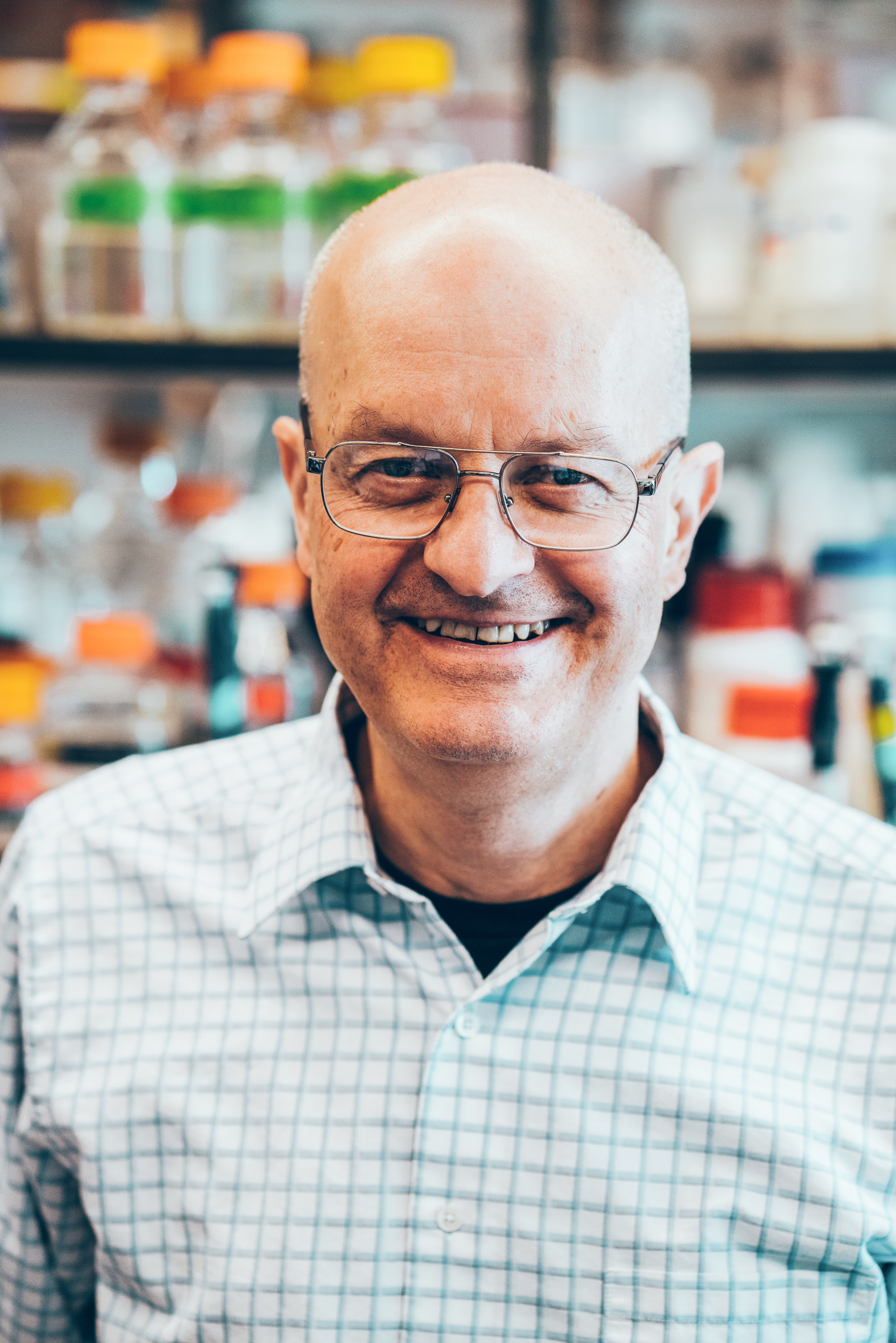
How does physical activity impact the aging process? Are there workouts that are better than others for our longevity?
It is beneficial. I recommend a blend of cardio and weight training. It’s not a new discovery that weight training has longevity-boosting benefits but, yet another study, recently published in the British Journal of Sports Medicine, cited the benefits of weight training for long-term health. It found that while engaging in three hours of aerobic exercise per week reduced mortality risk by 27%, adding just one to two strength-training sessions per week reduced the risk by 40%.
What does physical activity look like in a typical week for you? What do you do for recreation?
I do a mix of elliptical, biking, calisthenics/weights, and golf.
We notice you like a black t-shirt vs a white one (as an undershirt). Interesting sartorial choice, and one that we approve of. Have you always been a black-tee guy?
Honestly, I find white t-shirts to be dorky. I hate them. I only wear white undershirts in the context of formal attire, but if I’m not formally attired then I prefer black.
After work, do you unwind by streaming TV, reading a book, or listening to music?
After work, and generally, I unwind by reading and listening to music. Right now, I’m reading Pride and Prejudice by Jane Austen. I like to reread it every 15-20 years or so because the writing is so intricate that I kind of enjoy it. To me, it’s like reading Shakespeare — the intricate use of language coupled with deep insights into human motivations and sensibilities.
As far as music, I mostly listen to classical music; specifically, Beethoven. Like everyone, I enjoy his symphonies, but I happen to favor his 7th symphony.
What are your three non-negotiables in life?
Family, engaging work, and wine.
Connect with Lenny:
LinkedIn
LEAVE A REPLY
The ideas expressed here are solely the opinions of the author and are not researched or verified by AGEIST LLC, or anyone associated with AGEIST LLC. This material should not be construed as medical advice or recommendation, it is for informational use only. We encourage all readers to discuss with your qualified practitioners the relevance of the application of any of these ideas to your life. The recommendations contained herein are not intended to diagnose, treat, cure or prevent any disease. You should always consult your physician or other qualified health provider before starting any new treatment or stopping any treatment that has been prescribed for you by your physician or other qualified health provider. Please call your doctor or 911 immediately if you think you may have a medical or psychiatric emergency.


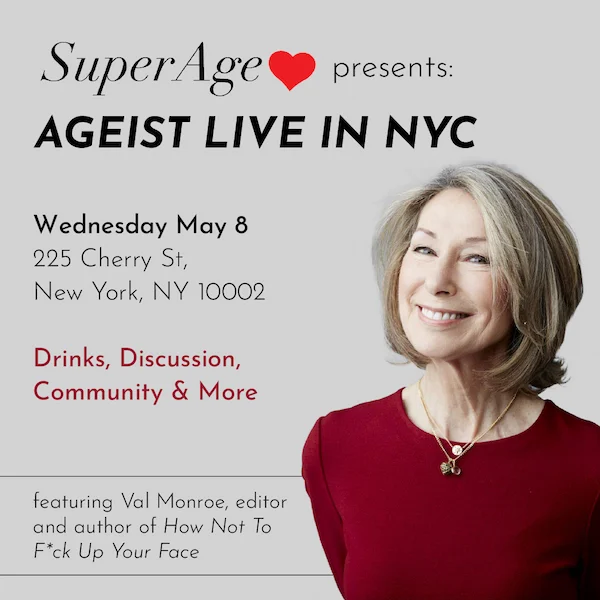
You’ve got the coolest interviews and stories, David.
Charter subscriber to Elysium products. They are finally getting the recognition they deserve. The Hepatology article is a great example of the potential of these products.
Elysium has expanded my knowledge about healthy aging. Thank you, Lenny Guarente and crew.